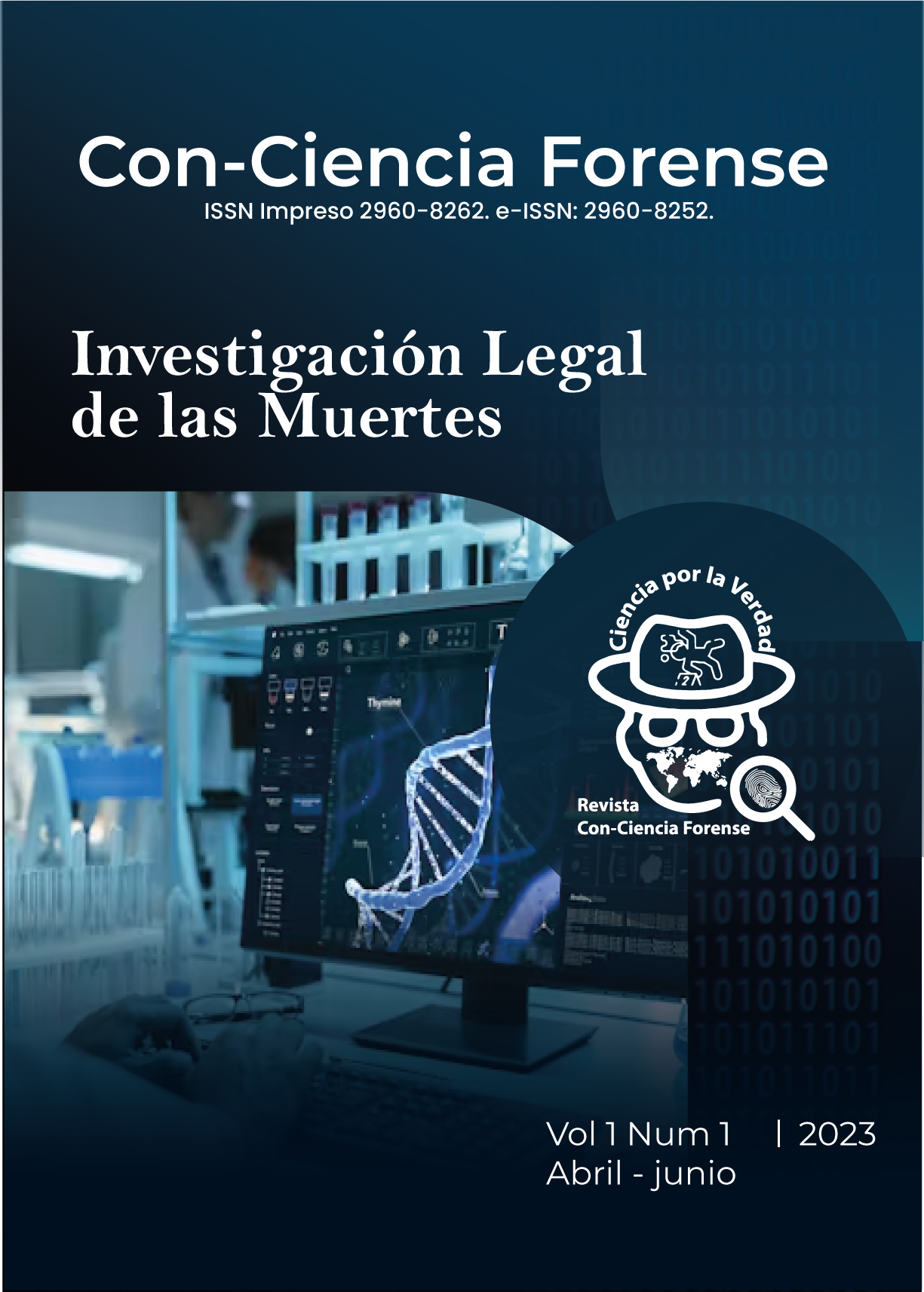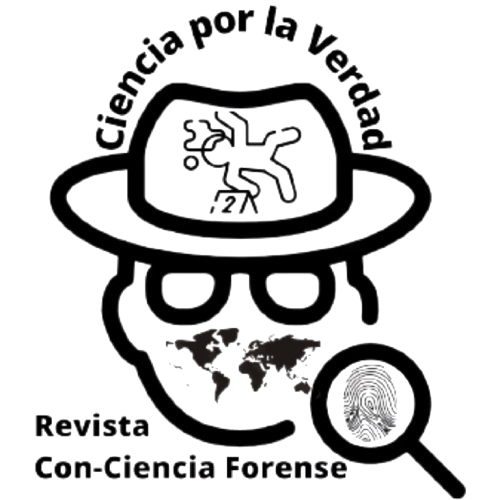Vol. 1 No. 1 (2023): Legal investigation of the deaths

The organization Ciencia Por la Verdad S.A.S., in this new stage, embarks on a publishing journey grounded in its experience in specialized training in forensic sciences such as Anthropology, Odontology, Genetics, Toxicology, Legal Medicine, Entomology, and Criminalistics, among others, as well as Criminology and Criminal Investigation. This endeavor results in the first issue of the International Journal of Forensic Sciences and Criminal Investigation — Con-Ciencia Forense — especially conceived to highlight Latin American development in these fields. This contribution is essential for understanding how our region provides a wealth of forensic knowledge related to its unique casework. Although there are already specialized journals, this publishing project is aimed at disseminating scientific, reflective, and systematic writings, featuring outputs from the specialized training programs of the Organization and its strategic — though not exclusive — partners: the Instituto Colbert (Argentina), the Popular University of Health, Education, Security, Science and Technology of Oncativo, and the Northern International University.
Public International Law has broad implications concerning the Legal Investigation of Deaths, encompassing diverse areas such as Human Rights violations (International Human Rights Law), serious offenses related to war crimes (International Humanitarian Law), and crimes against humanity (International Criminal Law). Investigating such cases requires judicial processes supported by effective documentation practices of the facts that occurred, within the framework of the Right to the Truth, which involves three key elements: full knowledge of the events and their motivations; identification and sanctioning of those responsible; and reparation for the victims.
Within these good practices of effective documentation — which States must ensure to prevent the recurrence of cruel acts against individuals — various forensic specialties play a crucial role. These are framed within Forensic Sciences for the Legal Investigation of Deaths along four main axes: Human Identification; determination of Cause, Manner, and Time of Death; documentation of injuries; and the criminal context that motivated the punishable act. All these efforts adhere to internationally established minimum standards such as the Minnesota Protocol (2016) and the Istanbul Protocol (2022).






